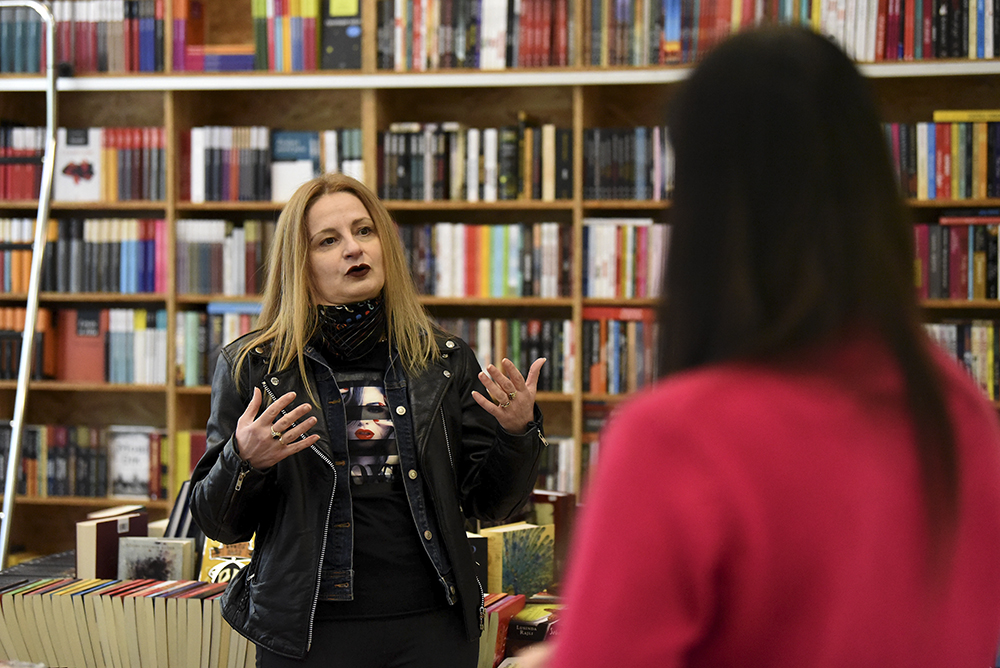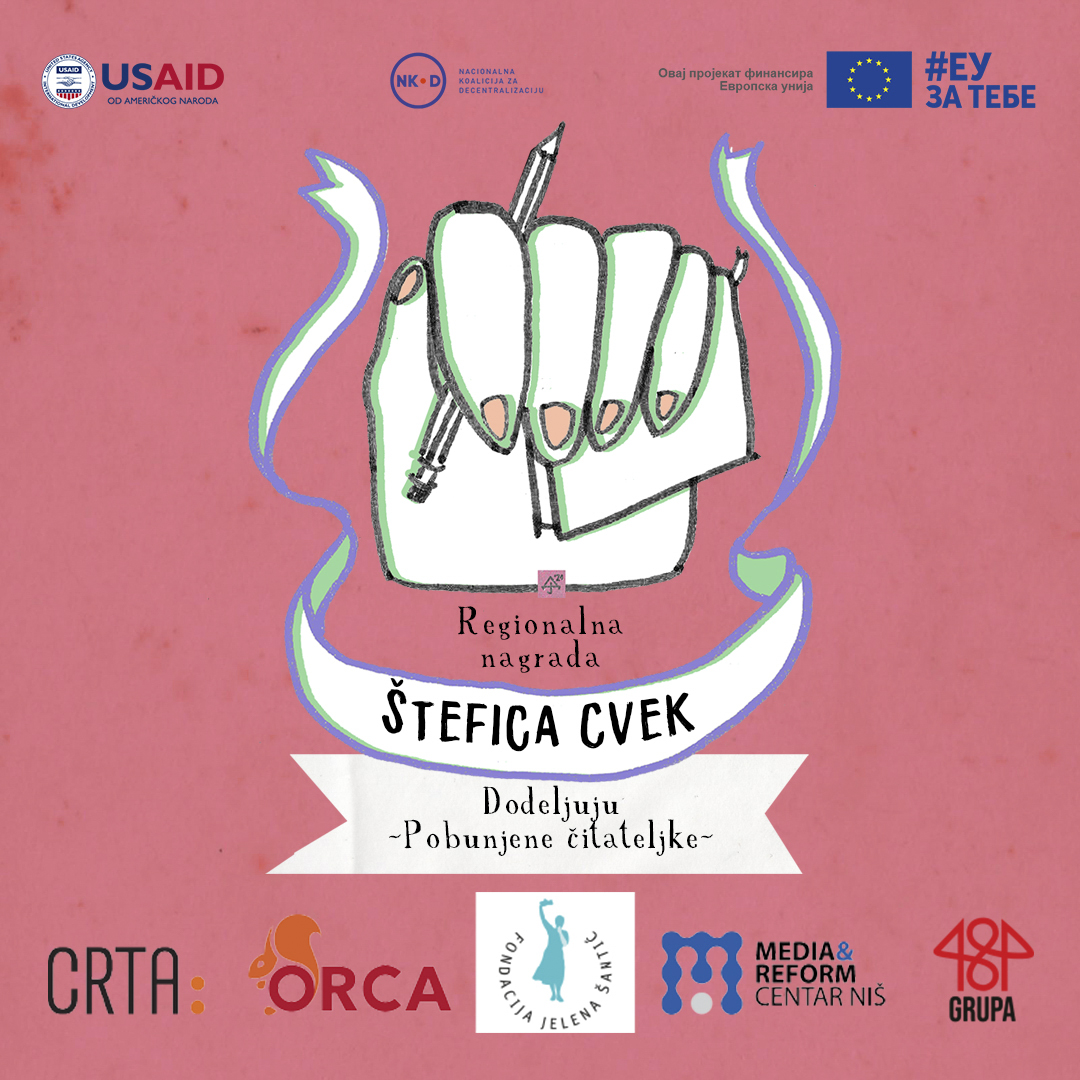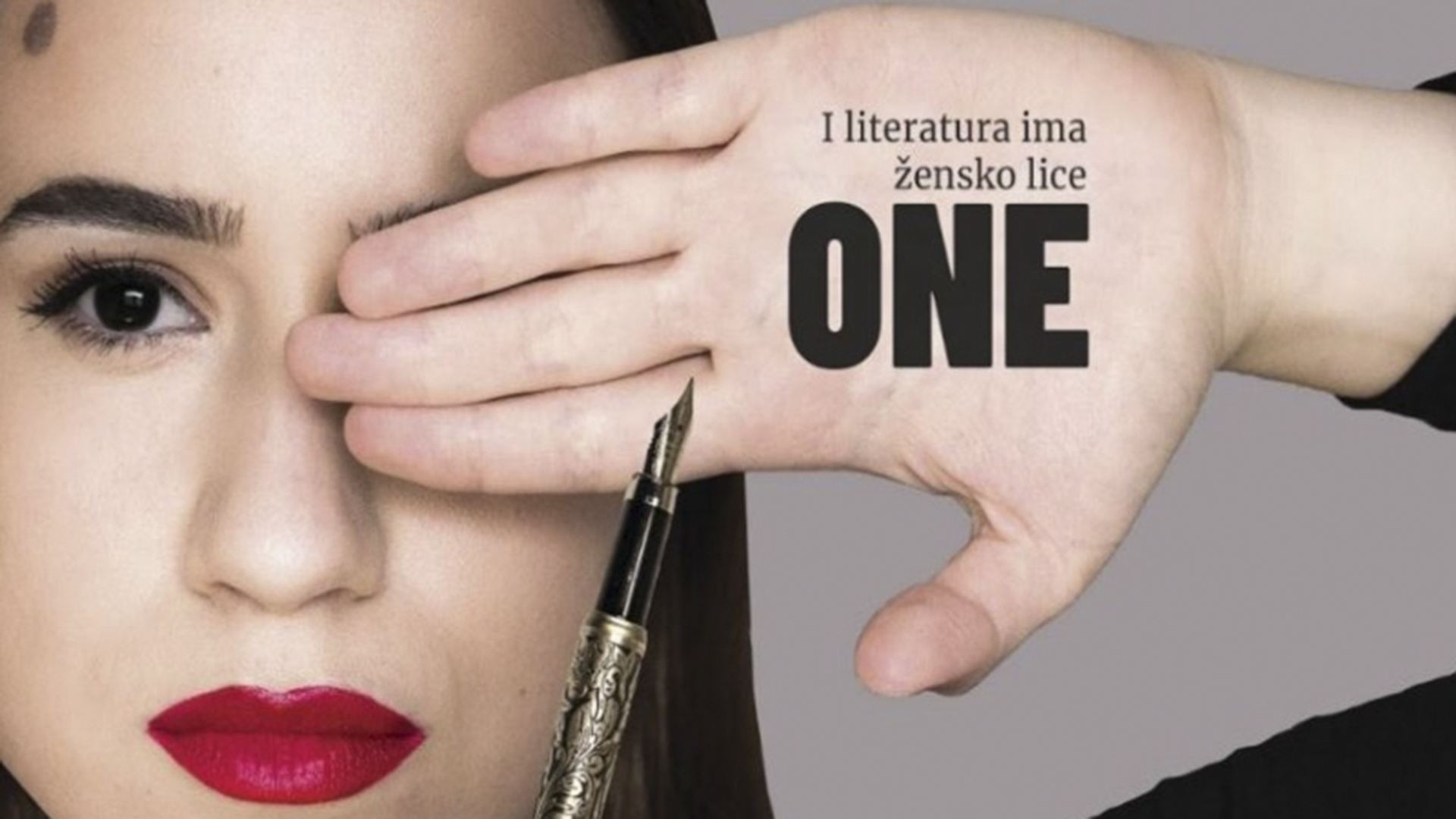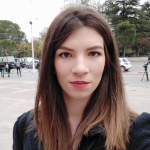Sonja Ražnatović is an engineer from Podgorica. Employed in her field of study, she has a secure job as well as a family, a pet and friends. She loves music and says that she enjoys the little things and makes sure to make the most of every day. She’s also the author of two novels. Anyone who knows her would describe her as a successful woman. But Ražnatović says that being a woman and being successful isn’t so easy in this region.
“In this part of the world, female authors have to work twice as hard and be twice as keen and eager as their male counterparts in order to be allowed anywhere near the literary scene,” she said. She added that even if they manage to carve out some space, women again are confronted with obstacles to overcome before their work becomes visible.
Bosnian writer Melida Travančić would agree with Ražnatović. “Women suffer at work, they suffer at home, they suffer throughout their careers, they suffer in the world of art and they have to invest an enormous amount of effort for their work to become visible and accepted. And who sets the measure of value and decides whether a work is good or bad? Men!”
In a society where everything that is “female” is often deemed trivial and of lesser value, marginalization is further aggravated by various terms such as “feminine writing,” “chick lit” and “women’s literature.”
Numerous obstacles and challenges haven’t derailed Sonja Ražnatović from pursuing what she loves. In February this year her second novel, “Exit: Restart,” won her a spot on a list of nine authors awarded the newly established regional literary award “Štefica Cvek.” Launched by Pobunjene čitateljke (“Rebellious Readers”), a regional collective that brings literary critics together, the Štefica Cvek award is not geared towards “women’s books,” but towards engaged feminist literature.
Literary rebellion
The Pobunjene čitateljke collective established the Štefica Cvek award in 2021 as a reaction to the fact that, as has happened frequently since the NIN Award began in 1954, not a single woman was nominated for the 2020 NIN Award’s shortlist. Founded by the Belgrade-based magazine NIN, the award went to women authors only six times in its long history. Dubravka Ugrešić was the first woman to receive the award for the novel “Štefica Cvek in the Jaws of Life,” but that came only in 1988. Ugrešić’s book first came out in 1981, while the eponymous TV show was filmed three years later.

Sonja Ražnatović’s second novel, “Exit: Restart,” won the Balkans’ very first feminist literary award, established by the Pobunjene čitateljke collective. Photo: Boris Pejović.
The novel, in which the author ironizes patriarchy and its norms, remains today a notable example of feminist literature in the region. Pobunjene čitateljke wanted to take a similar approach with their award, which they established with the aim of promoting female authors as well as other marginalized creators within the BCMS-speaking region. They hope that their activities will soon spread to Macedonian, Albanian and Slovenian-speaking areas.
The rebellious name of the collective was inspired by the way the members want people to read “against the grain,” in opposition to the cultural standards and frameworks in which the majority were raised. This is how Pobunjene čitateljke rebels against the established approach to literary criticism and literature, against sexism and the belittling of women, with the goal of creating a more equal, “if not a completely equal society,” as the collective says.
For Sonja Ražnatović, getting an award named after an iconic novel is a stimulus for further work and a symbol of the struggle against the marginalization of women’s literary expression. She wants women’s voices to be given more space in the future, for them to be heard, seen and read.
“Men in our communities have always, and still today, had absolute power in all spheres of life,” Ražnatović said. “In the political arena, media, the field of culture and publishing houses, on award juries… All these positions are predominantly held by men, symbiotically linked with other men.”
"The Balkans as it is today is a place where it's much easier to discuss the position of stars than the position of women, who are most of the time judged and subject to assessment by men."
Melida Travančić, writer.
Ražnatović is not alone in her opinion. “A woman writer, critic or reader is a woman who thinks,” Bosnian writer Melida Travančić said, adding that the society we live in considers smart women a threat because they try to bring about change.
“And that’s what society for the most part doesn’t like. Because our Balkan societies are failing to move forward and are not prone to change. They’ve been groping in the dark for the past 30 years,” the writer said. She added that the Balkans as it is today is a place where “it’s much easier to discuss the position of stars than the position of women, who are most of the time judged and subject to assessment by men.”
Dara Škuljić, a member of the Pobunjene čitateljke collective, holds that the problem lies with “a system that discriminates against different groups and poetics. It’s a system that leaves no room for critical thinking or dialogue and is not open, modern or progressive, which is also reflected in how various awards and prizes are handed out.”
Another member of the collective, Borisav Matić, points out that an additional issue is women’s representation in literature, “given that we often have sexist and misogynist patterns, we advocate feminist perspectives and push for books to be intepreted from a feminist point of view.”

Since 2021, the Štefica Cvek award has been handed out by Pobunjene čitateljke as a sign of rebellion against patriarchy in literature. Photo: Pobunjene čitateljke.
The collective sees sexism and discrimination not only in award ceremonies across the region, but in the whole process starting from publishing, into the writing of reviews, the representation in the media and everything else that leads to visibility, including literary awards. Members of the collective base these claims on the results of six months of regional monitoring they did in 2019, which clearly showed how marginalized women are in literature, both as authors and critics.
From publishing to awards
Based in Berane, Montenegro, another group of people acting on similar principles and goals manages a festival of female literary creation named “I literatura ima žensko lice” (“Literature has a woman’s face too”). First organized in 2020, the festival was kicked off by Montenegrin activist and writer Rebeka Čilović, whose aim is to promote women authors.
“Rebelliously, but very much deliberately, we wished for the quality literature written by women to be celebrated under the umbrella of a serious festival that would boldly say that it’s a women’s festival, but also a feminist one, and that it’s not a ‘poke in the eye,’” Čilović explained. She added that the festival aims to “open the eyes of communities who are shackled by the patriarchy to the fact that ‘literature has a woman’s face’ and that no one is entitled to sideline an extraordinary literary oeuvre just because women created it.”

I literatura ima žensko lice is a festival that was first held in 2020 in Berane. Its first edition was an expression of defiance against festivals dominated by men. Photo: I literature ima žensko lice
Organized in March 2020, the first edition of the festival was held under the slogan “Those women,” while the slogan of the second edition — held in November 2021 — was “I.” Those catchphrases were intended to put an additional emphasis on how women are often referred to in third person and how in literature they are left on the margins, how they, as the festival website states, “accomplish great things, but their scopes are limited.”
“The festival was born out of rebellion, because for too long we followed festivals that would call on women with the idea of ‘hey let’s invite some woman.’ It seemed like everything turned into form without any real substance,” Čilović said.
However, what women have to suffer living in such a patriarchal society, the experiences women go through, turn them into fighters who break stereotypes through their literature. By speaking and writing about topics that concern them on a personal level women offer depictions of the general state of society. When it comes to literature, Čilović is aware that women authors start out from a different position than male authors, so women from the get-go are forced to ask themselves how much time they have for writing.
Sonja Ražnatović used to face this problem, struggling to find the time to write in between her work and all the day-to-day responsibilities that were draining her time and energy that could have been used in more creative ways.
“A male author never wonders if he has time on his hands,” Čilović said. “He is a master, while the only thing left to a woman is to dream. Within this space, one or more lives come to pass, superseding literature. That’s our reality and we have to change it.”
Sonja Ražnatović believes that women write about details, as opposed to men, who write about epochs, wars, religion and other similar "big topics".
Travančić points out that women across the region are increasingly starting to write about discrimination as well as sexuality. “Erotica, getting familiar with your own body, is a predominant theme, or discussions of diseases that change a woman’s body. Taboos are being broken and limits are being pushed. There are works exploring motherhood, abortion and homosexuality, but nowadays even violence against women is written about. Many important subjects are being broached,” Travančić said.
Ražnatović thinks that women’s voices in literature are distinct from men’s. Whereas men seem to have an inclination towards “the big topics,” epochs, wars or religion, she thinks women excel at bringing out the details, the “tiny bits” of life, and with less ego.This exploration of female experience often ends up being read as something that interests only women, so these works are not treated open-mindedly enough.
“On the other hand, if the subject matter is the male experience, then that is somehow the universal experience of humankind, not just of men, or men from the Balkans and so on. What we have instead are universal experiences and values for the entire universe,” Matić said. “This strips both women writers and women readers of their privilege because they never get an opportunity to read about their own experience, but rather have to comply with the cliché male stories they read.”
Activism and literature
Rebeka Čilović believes that it is necessary to work towards change at all times, and she views literature as one of the key motors of change. “If literature doesn’t break down stereotypes, if its purpose is not to touch you and move you into action, then it has no value,” she said, adding that she believes the links between women authors and women’s activism to be unbreakable.
“Ideas are all that literature has. They’re the basis for forming women’s movements and organizing forums, so literature teaches us how to change our convictions and seek out followers as part of that change,” Čilović said. “In 10 to 20 years, it’s only through joint effort that we’ll be able to talk of a concrete change made on a wave of these emergent ideas. Until then, we must not wait for the time we live in to pass.”
Melida Travančić also believes that literature is there to change the world inside us as individuals and that authors try to encourage readers to think about changes.
“In those cases, we as writers are successful because we change or shift someone’s worldview, regardless of whether or not it’s only a single person. So, in that sense, today we can talk about the power of literature,” she said.
The first steps for Pobunjene čitateljke and I literatura ima žensko lice are to bring an end to the constant second-guessing directed at feminist literature and criticism and to “start listening, understanding and opening conversations,” Dara Šljukić said. She returns frequently to the literary character Štefica Cvek, who for over 40 years has been a symbol not only of rebellion and irony towards instilled patterns of behavior, but also of freedom and individual will.
Feature image: Boris Pejović.


This article has been produced with the financial support of the “Balkan Trust for Democracy,” a project of the German Marshall Fund of the United States and the Norwegian Ministry of Foreign Affairs. Opinions expressed in this article do not necessarily represent those of the Norwegian Ministry of Foreign Affairs, the Balkan Trust for Democracy, the German Marshall Fund of the United States, or its partners.
Why do I see this disclaimer?




